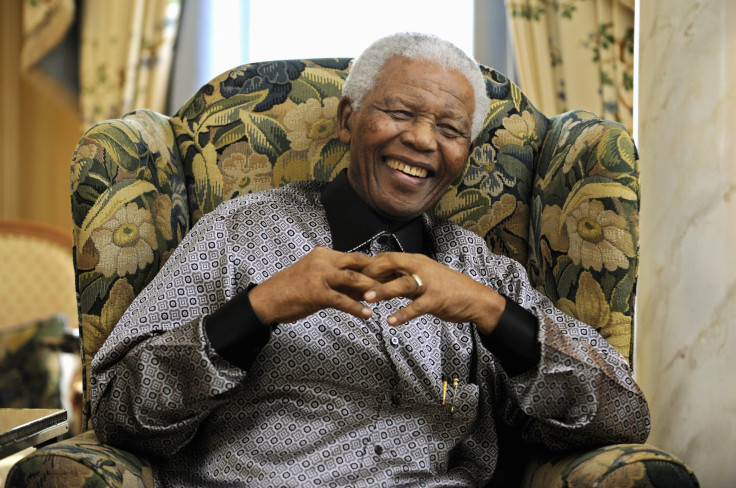
Nelson Mandela, the legendary South African president who fought against apartheid for racial justice, died at 95 on December 5, 2013 at his Houghton Estate in South Africa. For several months before his death, he has been struggling with his health. Ultimately, he lost the battle against his failing body and died at his home amongst family. "He is now resting," said South African President Jacob Zuma. "He is now at peace." The president called Nelson Mandela's death "The moment of our greatest sorrow." The former South African president is well known for the 27 years he spent in prison after being convicted of treason by the white government. He then brought an end to white rule through negotiation after his release from prison in 1990. He served one term as president in South Africa and was awarded the Nobel Peace Prize.
The anti-apartheid icon was a hero to both blacks and white, alike. He was often called the "moral compass" of the nation as they tried to move past the days of segregation. He did not only serve South Africa, but also the rest of the world. He was a voice for developing countries. Nelson Mandela was critical of U.S.. President George W. Brush's decision to go to war with Iraq in 2003. He accused him of "wanting to plunge the world into a Holocaust." In 2004, at 86 years old, he retired from public life to spend more time with his family. The "Legendary Stature" that Nelson Mandela enjoyed for much of his life was very much deserved, wrote the New York Times in an editorial following his death.
In the final months of his life, Mandela was fighting against multiple health issues including a lung infection. He was receiving home-based medical care for the last three months of his life. Since he was released from the hospital a few months ago, his status has remained critical but stable. Mandela will receive a full state funeral. Flags will be flown at half-mast. In a celebration of International Nelson Mandela Day, Latin Times has collected ten facts about the life an legacy of Mandela to not only remember him in death but celebrate his life's work.
1. Nelson Mandela was born in Mvezo, Transkei, South Africa on July 18, 1918. He has 5 children, Zindziswa, Zenani, Makgatho, Makaziwe, and Madiba Thembekile.
2. Nelson Mandela's birth name is Rolihlahla Dalibhunga Mandela, he was given the name 'Nelson' by a school teacher. He is also referred to as "Madiba," which is his traditional clan name.
3. Mandela is referred to as "the world's most famous political prisoner" and "South Africa's Great Black Hope."
4. Mandela studied at the University of South Africa, where he earned a degree in Law in 1942. Ten year later in 1952, Mandela opened the first black law partnership in South Africa with his friend, Oliver Tambo.
5. Mandela was the president of the ANC Youth League and also in 1952 he lead the Campaign for the Defiance of Unjust Laws, a program of nonviolent mass resistance.
6. Mandela served 27 years in prison, first on Robben Island, and later in Pollsmoor Prison and Victor Verster Prison. An international campaign lobbied for his release, which was granted in 1990.
7. Once released for prison in 1990, Mandela worked to eradicate apartheid and in 1994 he became the first black president of South Africa. Mandela formed a multi-ethnic government, which oversaw South Africa as it transitioned into The Government of National Unity.
8. Mandela won the 1993 Nobel Peace Prize in Norway, shortly after receiving the Liberty Medal from US President Bill Clinton.
9. Mandela found Gandhi his role model. According to some, Mandela is like Mahatma Gandhi, a statesman of international repute and a man whose belief in non-violence impressed the whole nation.
10. Mandela retired in June of 1999, he sought a quiet family life, and divided his time between Johannesburg and Qunu.
© 2025 Latin Times. All rights reserved. Do not reproduce without permission.





